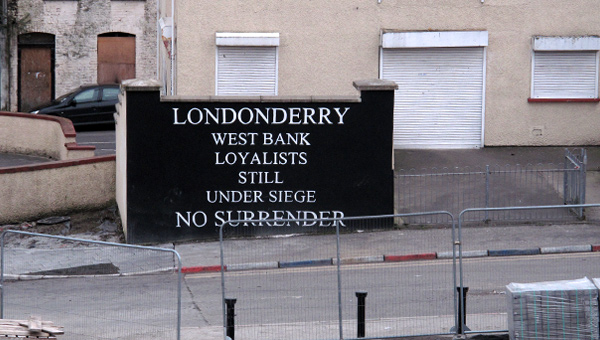Whose history is it anyway?


Can we trust our history? Who gets to tell the story? Whose version becomes the accepted wisdom? Can we do justice to all involved? Just some of the questions explored by a group of young adults from Magis Ireland at a weekend workshop in Derry.
The young adults from Magis Ireland went to the City of Culture Fri 22 -24 February for an ecumenical workshop on ‘Shared and Ethical Remembering.’ With facilitators Johnston McMaster (former Presbyterian Minister) and Dr Cathy Higgins, they looked at two topical documents anniversary wise -– the Ulster Covenant of 1912 and the Easter Rising Proclamation. They examined their own perhaps prejudicial views of those documents exploring whether there could be a shared remembering of historical events that have traditionally divided communities.
David Cleary, a history graduate and member of Magis, the Jesuit outreach to young adults, said it was a fascinating experience. “We took each document apart and there was a lot in both to cause shame for anyone calling themselves Christian, be they Protestant or Catholic. The vision of God that underpinned both those documents was far from what we would want to see God as.”
Both draw on an Old Testament God, he explained. “The Proclamation portrayed a God who revelled in blood sacrifice and it was underpinned by an atonement theology as a justification for violence. The country was seen to be cleansed by the spilling of blood”. he said. The Ulster covenant signed in blood paralleled itself with the covenant of the Old Testament, a sacred and non-negotiable deal sealing the fate of a special and ‘chosen’ people. When excavated, the god portrayed in these documents was a far cry from the Jesus of the Gospels who wanted a kingdom of peace, justice and goodness for all.
Christine Santistiban, another Magis member, said the weekend was demanding. “There were twelve of us and we all had our own takes on those documents. The challenge was to really listen to others and see things from their perspective.” She also noted that for her a really important question emerged around who gets to write the history. “Whose story is it any way, the victors; the big people, the powerful? That was a crucial insight for me,” she said.

